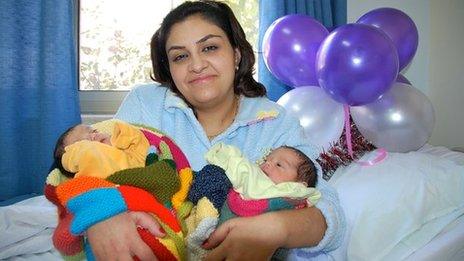Faith and fertility at Bethlehem's Milk Grotto
- Published
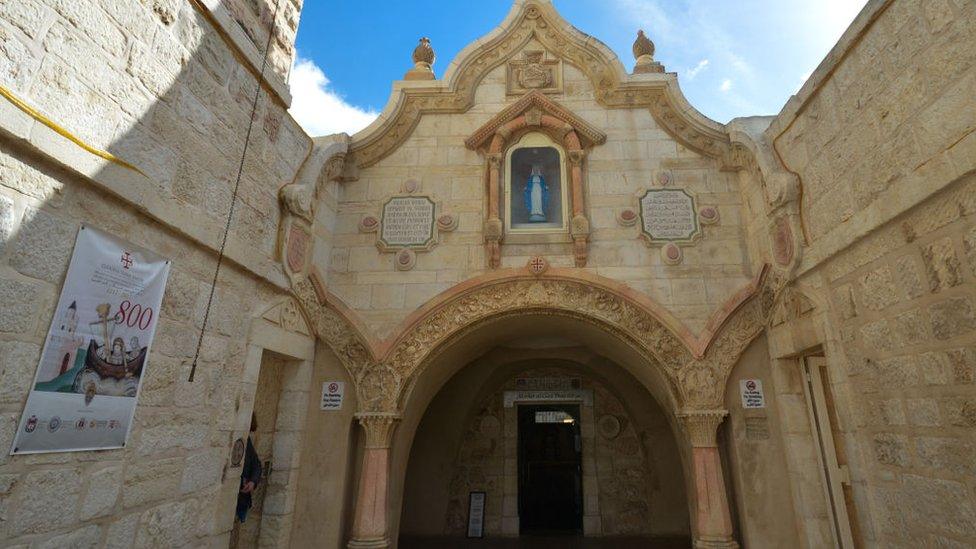
The Milk Grotto dates from the 1870s but the site's importance goes back to Biblical times
Usually the narrow, gently winding street to the side of Bethlehem's Church of the Nativity would be bustling with souvenir sellers.
They hail passing tourists in English, Spanish, Polish - trying to guess their nationality.
Today, with foreign travel here virtually impossible because of the pandemic, the shop windows are firmly shuttered - like eyes closed tight.
It's deserted when I reach the Milk Grotto too, although that's not so surprising - this little church is often overlooked by visitors on rushed trips around the Holy Land.
But I've always liked this tranquil spot, which is dedicated to the divine maternity of the Virgin Mary. And I'm not the only one.
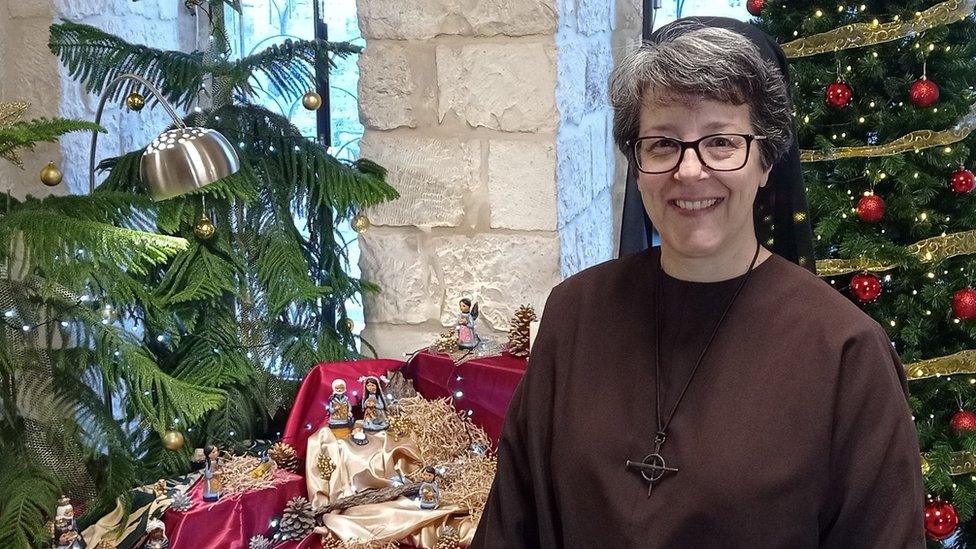
Sister Naomi Zimmerman: "Here there are miracles of life"
"To me, it's inspiring," says Sister Naomi Zimmerman, a Franciscan nun who first came here in the 90s and went on to work at a nearby centre offering counselling to the community.
"The fact that it's an active place of miracles to me was just amazing," she recalls, her eyes lighting up. "Here there are miracles of life - of children, of women's health. It's really one of my favourite places."
'The greatest gift'
A statue of the Virgin Mary breastfeeding her new baby sits serenely above the grotto entrance. It's said that the Holy Family sought refuge here during the Massacre of the Innocents by King Herod.
Mary is said to have spilled drops of her milk, so that the cave turned from a reddish stone to chalky white.
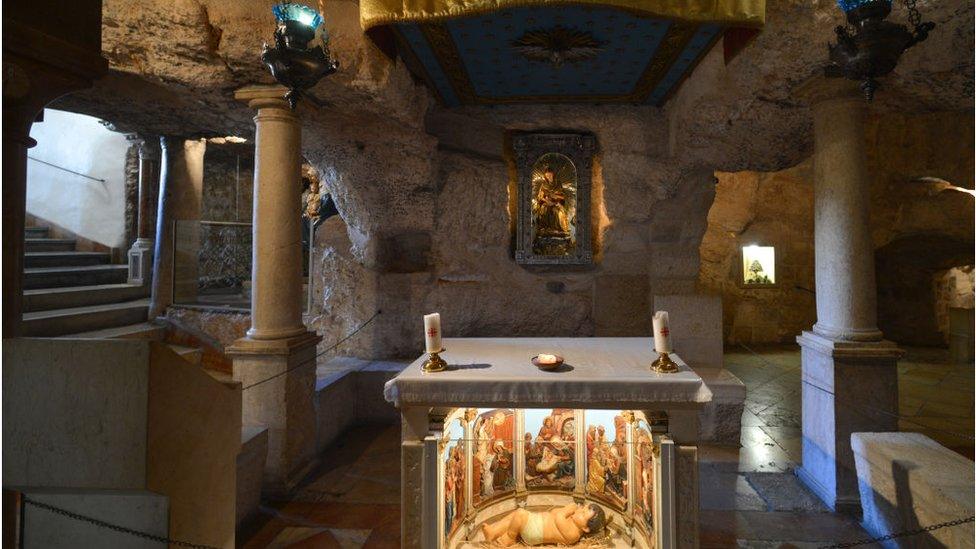
The grotto is said to have healing properties
It has long been believed that having a drink containing what they call "milk powder" - which is ground from the limestone - and saying a special devotion to Mary can heal health problems - especially those related to infertility.
Many Christians from Bethlehem have a story about the powers of the Milk Grotto.
After years of trying for a child, one woman finally gave birth at Christmastime after praying here with her husband. It was "the greatest gift", she tells me.
"It happened twice with people I know well," says tour guide Suad Sfeir. "My friend from the USA took some powder for her cousin who'd been married for 25 years and hadn't been able to have children.
"When she came back a year later, she brought me a picture of their little baby."
"It's easy to dismiss the milk powder as hocus pocus," cautions Sister Naomi as she holds up a sachet, "but it's about faith and belief."
'Miracle baby'
And there's plenty of that on display in a small office outside the church. Over the years, hundreds of touching letters have been sent from around the world testifying to apparent miracles.
A couple in India attach a photo of a chubby, smiling little girl. They took the milk powder after suffering two miscarriages. "Now we're happy," they write, simply.
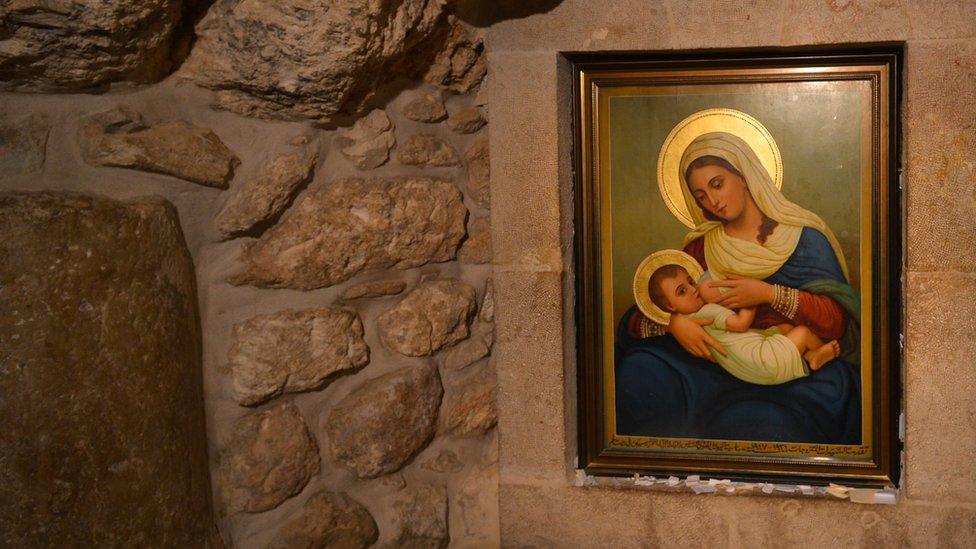
According to tradition, Mary spilt drops of her milk at the spot where the church stands
"I cried a lot and my tears were my prayers," says a French woman recounting her visit to the grotto to pray for a child. She says she became pregnant two months afterwards.
A woman in Brazil, who'd been told she was infertile, describes "a miracle called Gabriela" born after she heard about the church on a TV show and requested the powder.
Whatever your beliefs, a visit to the grotto, lends itself to spiritual reflection. Parts of it are hewn from rough stone and it's cool and quiet inside.
At the far end, a sign asks for "silence" and you can look down into a modern chapel where nuns keep a constant vigil, praying for peace.
I've even seen local Muslim women among those lighting candles, and women of all nationalities sitting silently in front of a striking, life-size icon of Mary.
The painting depicts her cradling Jesus to her bare breast. Nowadays, with a baby of my own, I can't help noticing that he's not properly latched on.
But for me, the picture exudes feminine power and motherly love.
'It brings hope'
Because of Covid-19 restrictions, the church is open for a just few hours each morning. And soon I find that Boutros, a young man preparing to be a friar, is waiting to lock up.
He's been praying for a childless South American couple who sent a message.
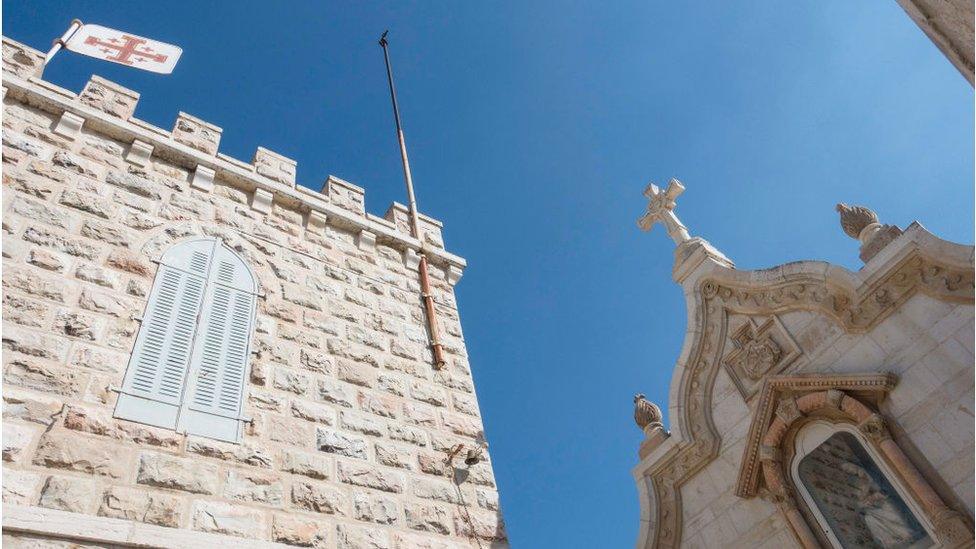
The pandemic has meant there are far fewer visitors to Bethlehem this month
"It's so hard not to be able to have a baby. A child brings a special flavour to your life," he tells me. "Mary is our mother, she listens to us and enters our hearts."
He says he's glad to be working at this holy site.
"In this year of the pandemic, this is somewhere happy. It brings hope," he smiles.
And I realise that's what draws me back.
If the Nativity Church invites the faithful to celebrate the birth of one child at Christmas time, then the Milk Grotto expresses the joy and hope for the future that every child can bring.
- Published28 December 2014
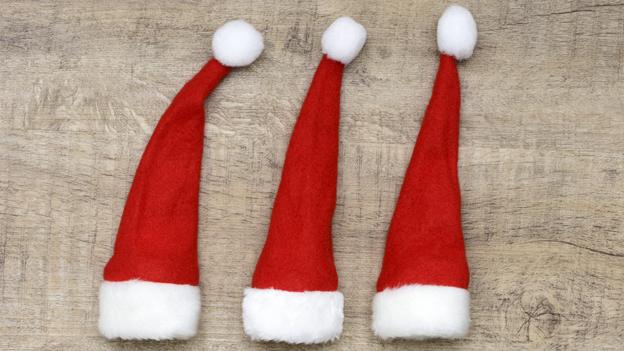
- Published24 December 2015
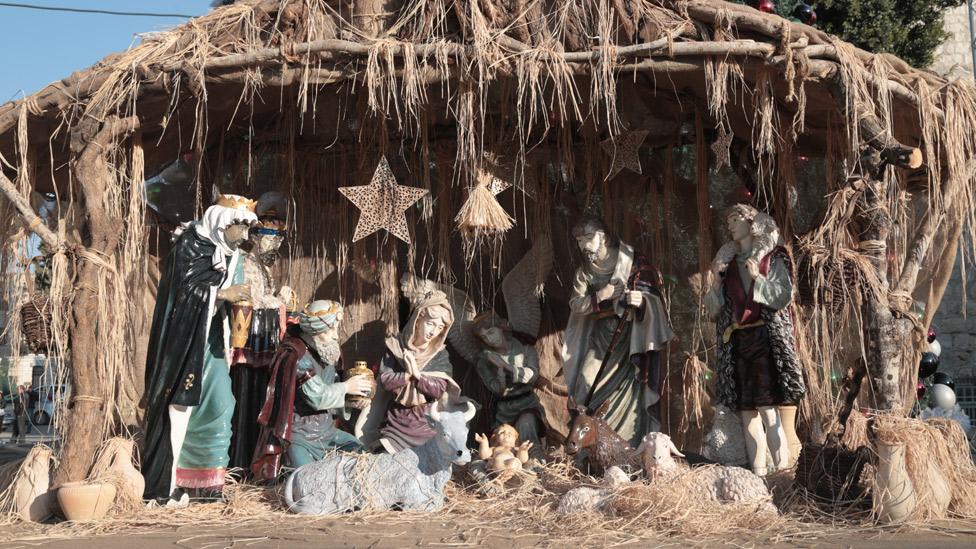
- Published24 December 2011
